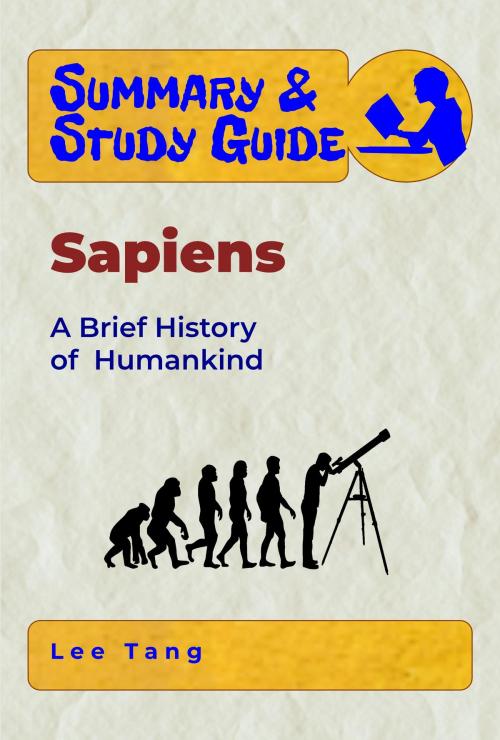Summary & Study Guide - Sapiens
A Brief History of Humankind
Nonfiction, History, Civilization, Science & Nature, Science, Biological Sciences, Evolution, Social & Cultural Studies, Social Science, Anthropology| Author: | Lee Tang | ISBN: | 9781988970110 |
| Publisher: | LMT Press | Publication: | June 15, 2018 |
| Imprint: | Language: | English |
| Author: | Lee Tang |
| ISBN: | 9781988970110 |
| Publisher: | LMT Press |
| Publication: | June 15, 2018 |
| Imprint: | |
| Language: | English |
How Humans Evolve from Insignificant Apes to Become the Rulers of the World
The must-read summary of “Sapiens: A Brief History of Humankind,” by Yuval Noah Harari.
In Sapiens, Professor Yuval Noah Harari focuses on the three great revolutions of human history: Cognitive, Agricultural, and Scientific. He presents a hypothesis about ow Homo sapiens transforms from an animal of no significance 70,000 years ago to become the rulers of the Earth.
Earlier human species such as Homo neanderthalensis in Europe and Homo erectus in Asia had climate and environment adaptations that sapiens did not have. The Cognitive Revolution between 70,000 and 30,000 years ago enabled the sapiens to form elaborate cultures and communicate in fictions. Myths, religions, moral codes, nations, corporations, and money are fiction that shapes human societies, allowing them to speak the same language and share the same customs, beliefs, rituals, and dreams. Fiction also allowed them to cooperate in groups, giving them a military and security advantage and encouraging specialization which eventually gave them a technological advantage.
This book tells the story of how these three revolutions have affected humans since the start of the Cognitive Revolution.
This guide includes:
- Book Summary—helps you understand the key concepts.
- Online Videos—covers the concepts in more depth.
Value-added from this guide:
- Save time
- Understand key concepts
- Expand your knowledge
This book challenges everything we thought we knew about being human.
How Humans Evolve from Insignificant Apes to Become the Rulers of the World
The must-read summary of “Sapiens: A Brief History of Humankind,” by Yuval Noah Harari.
In Sapiens, Professor Yuval Noah Harari focuses on the three great revolutions of human history: Cognitive, Agricultural, and Scientific. He presents a hypothesis about ow Homo sapiens transforms from an animal of no significance 70,000 years ago to become the rulers of the Earth.
Earlier human species such as Homo neanderthalensis in Europe and Homo erectus in Asia had climate and environment adaptations that sapiens did not have. The Cognitive Revolution between 70,000 and 30,000 years ago enabled the sapiens to form elaborate cultures and communicate in fictions. Myths, religions, moral codes, nations, corporations, and money are fiction that shapes human societies, allowing them to speak the same language and share the same customs, beliefs, rituals, and dreams. Fiction also allowed them to cooperate in groups, giving them a military and security advantage and encouraging specialization which eventually gave them a technological advantage.
This book tells the story of how these three revolutions have affected humans since the start of the Cognitive Revolution.
This guide includes:
- Book Summary—helps you understand the key concepts.
- Online Videos—covers the concepts in more depth.
Value-added from this guide:
- Save time
- Understand key concepts
- Expand your knowledge
This book challenges everything we thought we knew about being human.















